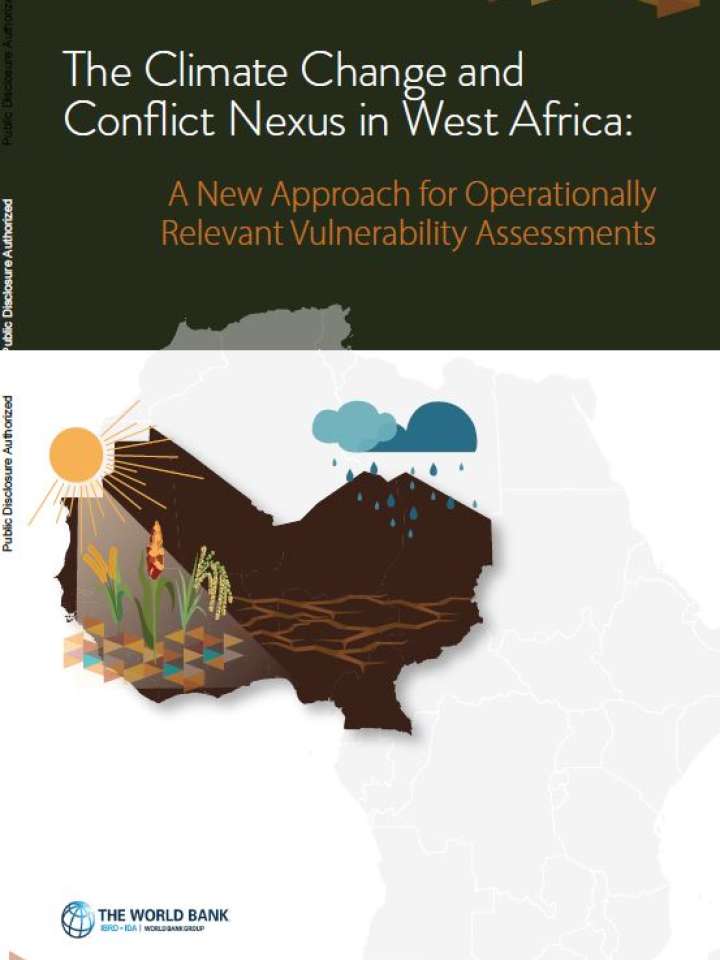The climate change and conflict nexus in West Africa: a new approach for operationally relevant vulnerability assessments
This report advances usable knowledge on how climate change and conflict interact in the region. Its findings contribute to a growing body of research examining the links between climate change and conflict outcomes. Its objective is twofold: first, to strengthen the evidence base on the relationship between climate change and socio-institutional fragility, violence, and conflict in West Africa; and second, to develop operationally relevant vulnerability data to enable clustering of locations with similar sources of vulnerability (in terms of exposure, sensitivity, and adaptive capacity) to climate and conflict risks. In doing so, the report breaks substantial new ground.
The report explicitly represents the spatial distribution of climate-related conflict vulnerability and its association with a range of biophysical, social, and economic factors. It identifies the associations between different climate drivers and conflict outcomes and develops a predictive model based on machine learning to assess the extent to which climate-related variables can predict conflict outcomes. It also uses a set of in-depth case studies to examine the potential mechanisms that may mediate the climate change and conflict relationship. Finally, the report highlights why and how specific locations are vulnerable to climate and conflict risks, rather than mapping levels of climate change and conflict vulnerability across space as most existing vulnerability indices typically do. In each of these ways, the report provides useful information to design, evaluate, and assess the operational effectiveness of projects that address climate and conflict-related vulnerability.
Explore further
